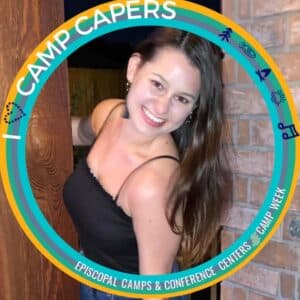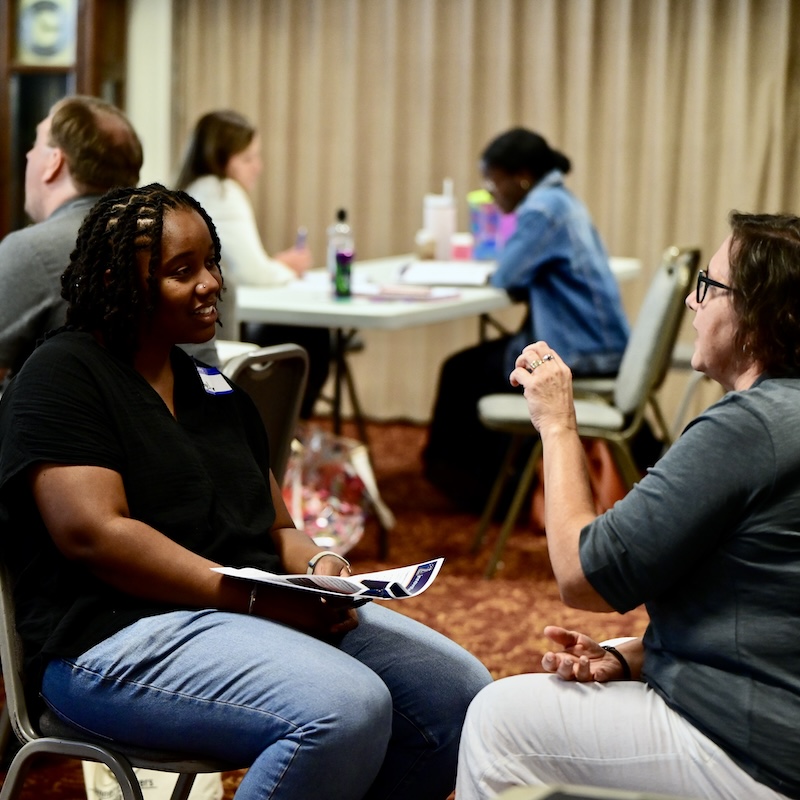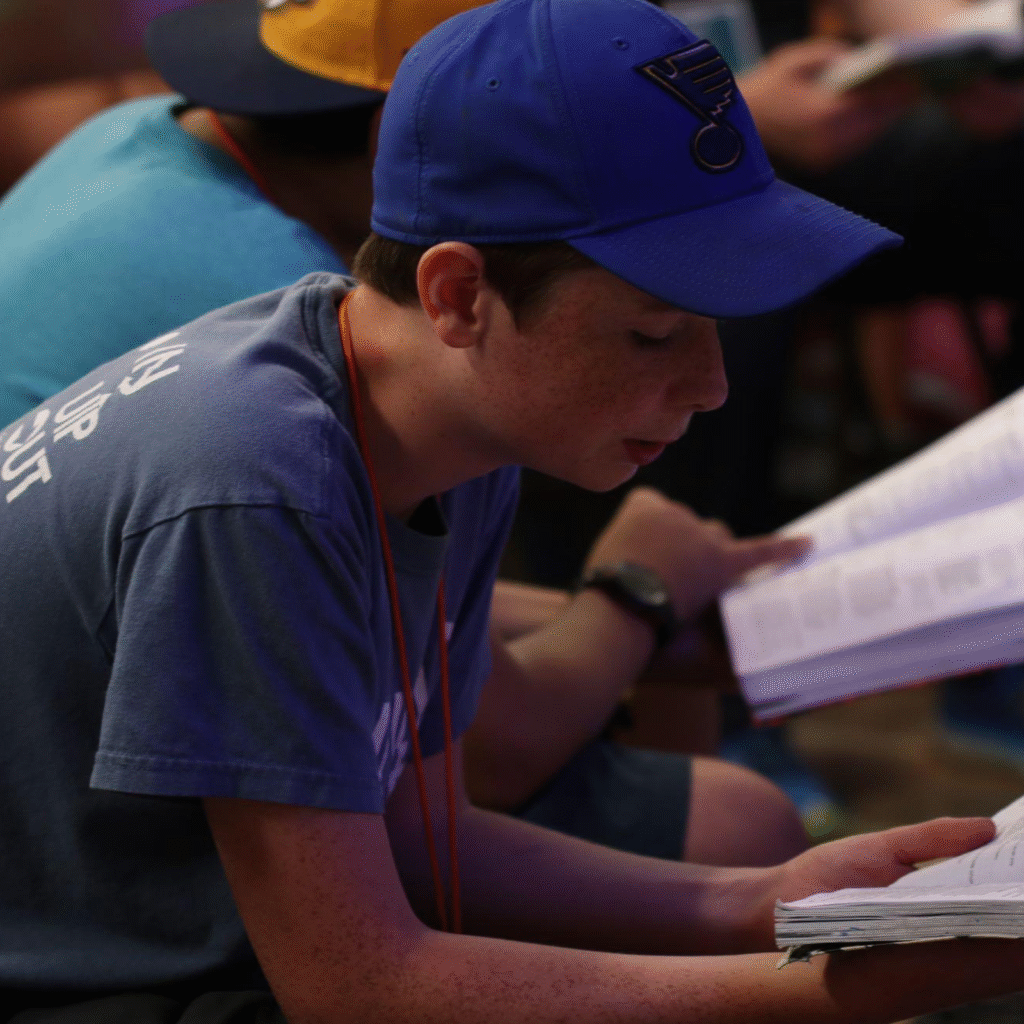No products in the cart.

Sarah Carlson was a high-achieving, high-anxiety teenager. She constantly pushed herself at school and in extracurriculars. Her schedule was packed with activities that would make her look good to colleges, her parents, and peers. She was always striving, stressing, and never really felt like she could just enjoy being herself.
Except at camp. Camp felt like coming home. Sarah spent every summer she could at Camp Capers. It was a place where she felt she could be a fully authentic version of herself, with no pressure to perform or achieve.

She experienced the love of God at camp more than anywhere else, and she credits Camp Capers as a massively formative space in her faith. The joy, love, and faith Sarah found there felt like a glimpse of how she could feel all the time. It helped her build the courage to simply be herself when she went home afterward. She then found herself seeking to create those spaces of authenticity and joy for others as well.
Sarah began to work at Camp Capers every summer, and eventually joined the Ministry Leadership Center’s Graduate Program. Then the opportunity of a lifetime came – to work full-time at the camp she loved. The role she was offered wasn’t inherently theological; as the director of programming, she organized staff trainings, games, and the “fun” parts of camp.

But the Ministry Leadership Center showed her how those things could be formative. She realized in her classes at Austin Seminary that the things she loved about camp – the fun, joy, and sense of safety – were every bit as much ministry as the worship sessions.
In particular, Sarah credits her coursework on the theology of play, led by Dr. David White, with helping her reframe camp as theologically-driven. The freedom and love experienced at camp were no longer a byproduct, but the purpose of all the messy games. Sarah used what she learned about how God is at work in those places to inform future game planning and staff training.
“When we give young people, particularly stressed-out teenagers, the chance to play for its own sake, we allow them to experience a version of themselves and their world that is truly set apart; we allow them to embrace themselves as inherently worthy of love outside of what they contribute.”
Sarah was one of those teenagers, and now she creates those pockets of hope for others. At the Ministry Leadership Center, our mission is to support and equip passionate, theologically educated leaders in all of the places where teenagers are being formed in faith.
Ministry doesn’t always look like teaching sermons and going for hospital visits. Sometimes, it looks like a sea of kids and camp counselors chanting your name to convince you to get in the pool…and holding your nose as you go for the cannonball.


